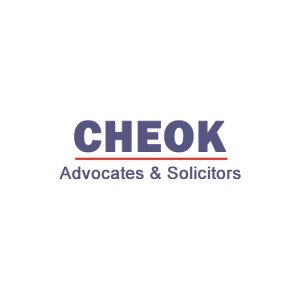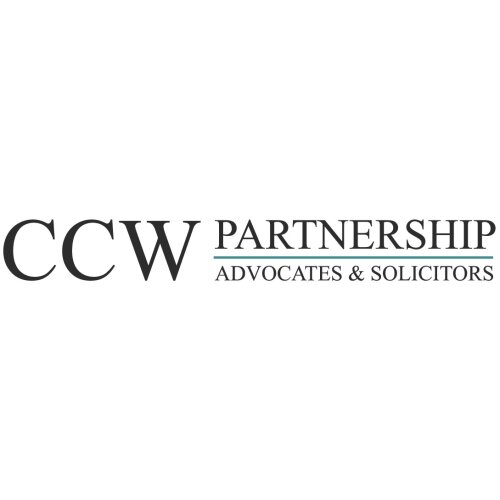Best Nonprofit & Charitable Organizations Lawyers in Brunei
Share your needs with us, get contacted by law firms.
Free. Takes 2 min.
Or refine your search by selecting a city:
List of the best lawyers in Brunei
About Nonprofit & Charitable Organizations Law in Brunei
Nonprofit and charitable organizations play a crucial role in Brunei's social and economic landscape. These organizations are typically established to address various social issues, promote education, support health-related causes, and contribute to community welfare. In Brunei, these entities need to comply with specific regulations and legal structures designed to ensure they operate effectively and responsibly. The country's legal framework provides guidelines for the establishment, management, and dissolution of nonprofit entities, ensuring that they align with national interests and legal standards.
Why You May Need a Lawyer
There are several scenarios in which individuals or organizations might require legal assistance in the realm of nonprofit and charitable organizations in Brunei. For instance, when establishing a new nonprofit, legal expertise is necessary to navigate the registration process, draft articles of association, and ensure compliance with local laws. Additionally, legal advice might be needed for tax matters, particularly in understanding exemptions and obligations. Organizations may also need assistance in drafting contracts, managing employment issues, or addressing compliance with governance standards. A lawyer can provide valuable insights to ensure that the organization adheres to legal requirements, thus avoiding potential liabilities.
Local Laws Overview
In Brunei, the legal framework for nonprofits is primarily governed by the Societies Order, which sets forth the rules for the registration, management, and operations of societies. The Order outlines the requirements for registering a nonprofit, including the submission of key documents such as the organization's constitution and detailed information about its officers. Nonprofits must comply with reporting requirements, including financial transparency and accountability. Additionally, the regulations stipulate guidelines for the conduct of fundraising activities to ensure ethical practices. Brunei's legal framework is designed to ensure that charitable organizations operate in a manner that respects public trust and adheres to the nation's legal standards.
Frequently Asked Questions
1. What is the process for registering a nonprofit organization in Brunei?
You must submit an application to the Registrar of Societies, along with necessary documents such as the organization's constitution and details of its officers.
2. Are nonprofit organizations in Brunei eligible for tax exemptions?
Yes, nonprofits can apply for tax exemptions, but eligibility depends on specific criteria outlined by the Revenue Division.
3. Can a foreign organization establish a branch in Brunei?
A foreign organization can establish a branch in Brunei, but it must comply with local registration requirements and operate in accordance with Brunei's laws.
4. What are the reporting requirements for nonprofits in Brunei?
Nonprofits must provide annual financial statements and reports to demonstrate transparency and accountability in their operations.
5. Do nonprofits in Brunei need to follow specific governance standards?
Yes, organizations must adhere to governance standards to maintain accountability and integrity in their operations, including the roles and responsibilities of their officers.
6. Are there restrictions on fundraising activities for nonprofits in Brunei?
Fundraising activities must align with guidelines to ensure ethical practices and compliance with local laws governing such activities.
7. What happens if a nonprofit fails to comply with legal requirements?
Non-compliance can lead to penalties, including fines, suspension of operations, or deregistration of the organization.
8. Can a nonprofit organization engage in commercial activities?
Yes, but any income generated must be used to further the organization's charitable objectives and not for private gain.
9. How can a nonprofit organization dissolve in Brunei?
Dissolution must be conducted according to legal procedures, including settling liabilities and distributing any remaining assets in accordance with the organization's constitution.
10. Are there specific employment laws for hiring staff in nonprofits?
Nonprofits must follow general employment laws of Brunei while hiring staff, including wage regulations and workers’ rights.
Additional Resources
For further assistance, you may contact the following:
- Registrar of Societies - For registration queries and compliance issues.
- Revenue Division - For information on tax matters and exemptions.
- The Ministry of Culture, Youth and Sports - For support regarding community and youth-related nonprofits.
- Brunei Darussalam Red Crescent Society - For collaboration and guidance in humanitarian efforts.
Next Steps
If you require legal assistance with your nonprofit or charitable organization in Brunei, consider contacting a lawyer who specializes in nonprofit law. They can guide you through the legal intricacies of setting up and managing your organization, ensuring compliance with local regulations. Start by collecting all relevant documents and information regarding your nonprofit's mission, structure, and governance to facilitate a productive consultation. Additionally, staying informed about ongoing updates to nonprofit laws and engaging with legal experts can help your organization achieve its objectives effectively and in alignment with Brunei's legal requirements.
Lawzana helps you find the best lawyers and law firms in Brunei through a curated and pre-screened list of qualified legal professionals. Our platform offers rankings and detailed profiles of attorneys and law firms, allowing you to compare based on practice areas, including Nonprofit & Charitable Organizations, experience, and client feedback.
Each profile includes a description of the firm's areas of practice, client reviews, team members and partners, year of establishment, spoken languages, office locations, contact information, social media presence, and any published articles or resources. Most firms on our platform speak English and are experienced in both local and international legal matters.
Get a quote from top-rated law firms in Brunei — quickly, securely, and without unnecessary hassle.
Disclaimer:
The information provided on this page is for general informational purposes only and does not constitute legal advice. While we strive to ensure the accuracy and relevance of the content, legal information may change over time, and interpretations of the law can vary. You should always consult with a qualified legal professional for advice specific to your situation.
We disclaim all liability for actions taken or not taken based on the content of this page. If you believe any information is incorrect or outdated, please contact us, and we will review and update it where appropriate.
Browse nonprofit & charitable organizations law firms by city in Brunei
Refine your search by selecting a city.














